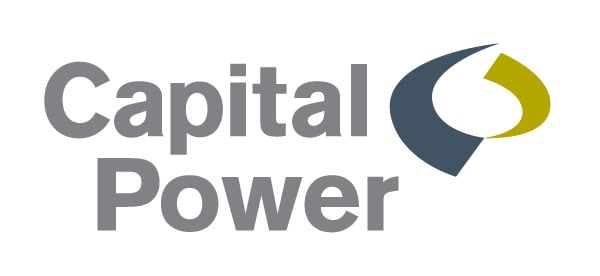Ratepayers across the United States are experiencing escalating electric bills, a situation exacerbated by the increasing involvement of private equity firms in the utility sector. A significant development occurred in October when Minnesota state regulators approved the acquisition of Allete by BlackRock and the Canada Pension Plan Investment Board. This move positions BlackRock as the majority stakeholder in Allete, which operates Minnesota Power, the primary electric utility in northern Minnesota. The decision faced substantial public opposition and came despite a strong recommendation from an administrative law judge to reject the deal.
With this acquisition, BlackRock shifts Allete from a publicly traded entity to a private company. The firm is also targeting utility giant AES, which operates in Ohio and Indiana, while Blackstone seeks approval for its acquisition of TXNM Energy, which serves hundreds of thousands of customers in New Mexico and Texas. The surge in private equity interest in utilities is largely driven by an increasing demand for electricity from data centers, which are significant consumers of power and offer reliable returns for investors.
Critics warn that this trend may have dire consequences. They argue that private equity firms like BlackRock and Blackstone may impose a model focused on profit at the expense of transparency and service quality. Alissa Jean Schafer, climate director at the Private Equity Stakeholder Project, called the approval of the Allete deal “precedent-setting.” She expressed concern that it signals a shift in critical infrastructure management to the highest bidder.
Community Opposition and Regulatory Challenges
When BlackRock’s Global Infrastructure Partners announced a $6.2 billion deal in May 2024 to acquire Allete, many community members and activists voiced their opposition. They feared that a private equity takeover could diminish transparency and lead to higher rates. This apprehension was echoed in July, when an administrative law judge recommended that the Minnesota Public Utilities Commission (PUC) reject the acquisition, suggesting that BlackRock would prioritize profits over public interest.
Maggie Schuppert, an organizer with the advocacy group CURE, noted that the political maneuvering intensified as the deal progressed. After negotiations between Allete and state regulators, Minnesota’s Department of Commerce reversed its initial opposition to the deal, citing concessions made by Allete. Records indicate that there were unusual communications between the department and Allete during this period.
Despite strong opposition, the PUC ultimately approved the acquisition, granting a one-year base rate freeze and other temporary concessions. Critics argue that these measures do not address the fundamental risks associated with privatizing essential services. Schuppert emphasized that the decision felt politically motivated, with significant influences from powerful stakeholders looking to capitalize on the growing demand from data centers.
Implications for Utility Customers
The entry of private equity into the utility sector raises numerous concerns for consumers. One major issue is the potential decline in transparency, as private companies are not required to disclose the same level of information as publicly traded firms. Tyson Slocum, director of Public Citizen’s Energy Program, described the challenge of keeping regulators informed as a “game of whack-a-mole,” where finding necessary information becomes increasingly difficult.
Sandeep Vaheesan, an expert in electrification history, warned that private equity firms often adopt an “extractive orientation,” prioritizing high returns for investors over customer needs. He drew parallels between the fate of department stores like Sears and JC Penney and the potential risks for electric utilities under private ownership. BlackRock’s GIP, which is set to own a 60 percent stake in Allete, has promised returns of 15 to 20 percent to its clients, significantly higher than Minnesota Power’s current 9.78 percent return on equity.
This focus on profit could lead to cost-cutting measures that compromise safety and service reliability. The burden of rising utility bills disproportionately impacts low-income households, including many Black, Latino, and Indigenous families, who may struggle to pay for basic necessities alongside their electric bills.
The influence of private equity firms on state regulators, particularly in the face of substantial financial resources, raises concerns about the ability of local entities to maintain effective oversight. Slocum highlighted the imbalance of power, noting that utilities have access to extensive legal and financial expertise that regulators may lack.
As states grapple with the implications of these acquisitions, the approval of the Allete deal sets a troubling precedent that could encourage similar actions in other regions. Slocum cautioned that the lesson learned is how private equity can exert political and economic power to circumvent public interest.
The rush for utilities is driven not only by their existing infrastructure but also by the burgeoning demand from data centers. A recent study suggests that this growth could increase electricity bills by up to 25 percent in certain markets. The financial allure for private equity firms is significant, especially as they seek to leverage their control over utilities to manage the costs of expanding data center infrastructure.
A Call for Public Power
In light of the Minnesota PUC’s approval of BlackRock’s acquisition, public sentiment has turned against such privatization efforts. Schuppert noted the widespread dissatisfaction among citizens, emphasizing that political consequences are likely for those who supported the deal. Advocates for public power view this moment as an opportunity to push for more democratic and sustainable energy systems.
Vaheesan argued that the rising costs associated with private equity ownership could bolster support for public power initiatives, which often provide lower rates and more reliable service. He highlighted the growing movement in the U.S. advocating for publicly owned utilities, which could offer more equitable solutions than those driven by investor interests.
As the debate over utility ownership continues, many are calling for increased vigilance and advocacy to ensure that essential services remain within the control of the public. The situation in Minnesota may serve as a catalyst for broader discussions about the future of energy infrastructure and the role of private equity in shaping it.







